Battle for Iraq's oil refinery can be seen from space - PHOTO
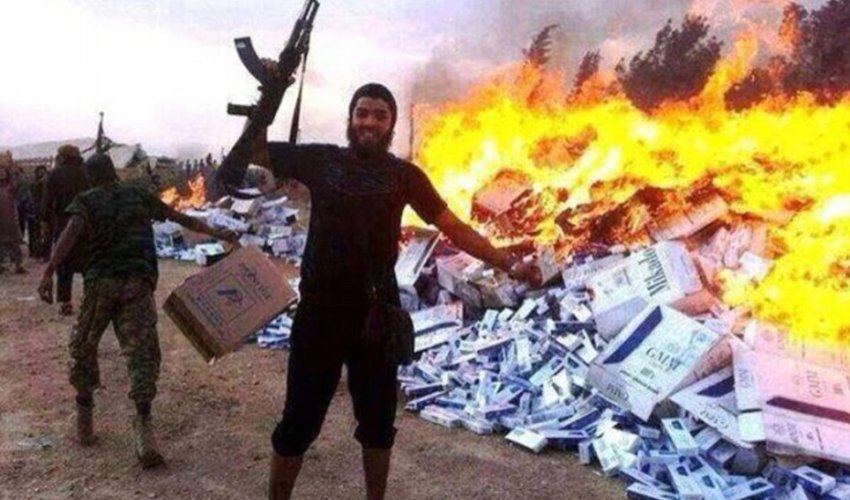
Dramatic satellite images emerged this evening showing the oil facility in Baiji with black smoke billowing from the site's buildings. ISIS rebels had also raised black jihadist banners around the key strategic facility in Baiji despite government forces insisting they were in 'complete control' of the plant.The photos also show U.S.-made Humvees captured by the heavily armed militants as they manned a checkpoint near the sprawling facility. In the background, heavy black smoke rises up from the refinery. Workers who had been inside the complex, which spreads for miles close to the Tigris river, said Sunni militants seemed to hold most of the compound in early morning and that security forces were concentrated around the refinery's control room.The 250-300 remaining staff were evacuated after a temporary ceasefire, one of the fleeing workers said. Amid conflicting reports, Iraqi troops later claimed they had driven the insurgents out.Elsewhere, hundreds took to the streets in so-called Peace Brigades near to the Imam Ali shrine in Najaf. The action followed calls by the radical Shiite cleric Muqtatda al-Sadr to form brigades to protect Shiite holy shrines against possible attacks by Sunni militantsPresident Barack Obama has said this evening he will not send combat troops back to Iraq - but that he is prepared to take 'targeted military action' and deploy 300 'military advisers' to the war-torn country.In a statement made at the White House, Obama said U.S. forces will not be returning to combat in Iraq but will help train Iraqis. He added that intelligence, surveillance and reconnaissance operations in Iraq had been stepped up to better understand the threats to Baghdad.The move came as jihadists took a chemical weapons facility built by Saddam Hussein which contains a stockpile of old weapons.State Department officials told the Wall Street Journal: 'U.S. officials don't believe the Sunni militants will be able to create a functional chemical weapon from the material. The weapons stockpiled at the Al Muthanna complex are old, contaminated and hard to move.''Nonetheless, the capture of the chemical-weapon stockpile by the forces of the Islamic State of Iraq and al-Sham, known as ISIS or ISIL, the militant group that is seizing territory in the country, has grabbed the attention of the U.S.''We remain concerned about the seizure of any military site by the ISIL,' Jen Psaki, the State Department spokeswoman, said in a written statement. 'We do not believe that the complex contains CW materials of military value and it would be very difficult, if not impossible, to safely move the materials.'As the militants continued their drive towards Baghdad, embattled Prime Minister Nouri al-Maliki resisted a growing clamour from the U.S. to step down.Baghdad has formally requested that Washington launch air strikes on the advancing ISIS militants, but there were no signs U.S. military action was imminent.U.S. officials castigated Maliki, who is being blamed in Washington for provoking the uprising by causing Iraq to splinter after discriminating against the minority Sunni community.Obama and his national security team met to discuss how strongly to press Iraqi Prime Minister Nouri al-Maliki to undertake reforms and make his government more inclusive.Top U.S. officials believe that giving more credence to Sunni concerns about al-Maliki may offer the best opportunity to stave off another deadly round of sectarian fighting of the kind that engulfed Iraq less than a decade ago. U.S. officials said there was concern within the administration that pushing al-Maliki too hard might stiffen his resolve to stay in office and drive him closer to Iran, which is seeking to keep the Shiite leader in power. The Obama administration wants to see evidence of a leadership transition plan being put in place in Iraq. In a conference this evening Obama said: - The US would send 300 military advisors - but not combat - to support the Iraqi military. - Surveillance in Iraq has been stepped up - but no airstrikes planned. - Obama said: 'Iraqi leaders must rise above their differences and come together around a political plan for Iraq's future'. - John Kerry will travel to the region to speak with allies - Iran should play a 'constructive role' in stabilising its neighbour.Making a swipe at President Bush, he added: 'We should always ask hard questions before taking military action abroad.'Chuck Hagel, the US defence secretary, also said this evening: 'I support President Obama's decision to deploy U.S. military personnel to advise the Iraqi security forces. 'These special operators will assess the situation on the ground, help evaluate gaps in Iraqi security forces, and increase their capacity to counter the threat posed by the Islamic State of Iraq and the Levant. 'However, as the president has repeatedly made clear, Iraq's problems cannot be resolved through American action alone, or through military force alone.' Meanwhile, British Foreign Secretary William Hague has told ITV News that Iraq faces a 'severe challenge to its existence as a state'.But he ruled out military intervention, saying: 'We are not planning that, we're not contemplating that, we are not having meetings.'Vice President Joe Biden drove home the U.S. message that Maliki needs to lead all Iraqis, not just Shi'ites.He told the Iraqi leader in a telephone call that he must govern in an 'inclusive manner, promote stability and unity among Iraq's population, and address the legitimate needs of Iraq's diverse communities,' a White House statement said.Several other leading figures in Congress have also spoken out. 'The Maliki government, candidly, has got to go if you want any reconciliation,' said Dianne Feinstein, one of Obama's fellow Democrats, who chairs the Senate Intelligence Committee.Republican senator John McCain urged Obama to 'make it make very clear to Maliki that his time is up'.But Maliki's spokesman, Zuhair al-Nahar, today insisted that his administration was inclusive, with Sunni Muslims well represented in key roles.'Prime minister Maliki has never used sectarian tactics, he believes truly that Iraq will not work without the true participation of the Sunni community,' he said.In an apparent change of course, President Barack Obama indicated today that he does not need authorisation from Congress to take any steps over action in Iraq, top Senate Republican Mitch McConnell said.While Mr Obama has not fully ruled out the possibility of launching air strikes, such action is not imminent, officials said, in part because intelligence agencies have been unable to identify clear targets on the ground.However, he is expected to announce that he is deploying about 100 special forces known as Green Berets to Iraq to help train and advise Iraqi forces, according to a U.S. official. The United States spent billions of dollars over several years training and arming Iraqi security forces after disbanding the Sunni-led army following the 2003 invasion that ousted dictator Saddam Hussein.But the security forces wilted when faced with the militant offensive on June 9 which saw insurgents quickly capture Mosul, a city of some two million people, and then parts of Salaheddin, Kirkuk and Diyala provinces.Some abandoned their vehicles and uniforms when faced with the insurgents.The Sunni fighters have been led by the powerful Islamic State of Iraq and the Levant, but also include a wide coalition of other Sunni Arab militant groups, as well as loyalists of executed dictator Saddam Hussein.Al-Maliki, a Shiite, has rejected charges of bias and instead said the crisis has led Iraqis to rediscover 'national unity.' Still, Maliki's outreach remains largely rhetoric, with no concrete action to bridge differences with Sunnis and Kurds, who have been at loggerheads with the prime minister over their right to independently export oil from their self-rule region in the north and over territorial claims.Meanwhile, the Iraqi government today likened the jihadist insurgency to the Nazi occupation of Europe.Zuhair al-Nahar, a spokesman for Iraqi prime minister Nouri al-Maliki's Dawa party, said the country's leaders felt 'abandoned' and 'want America, Europe, the UN to take immediate action to rectify the military situation'.(dailymail.co.uk)Bakudaily.az
Latest news 
More news 
























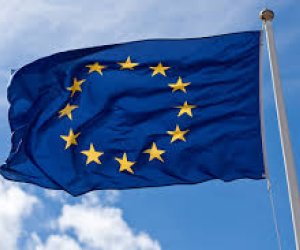
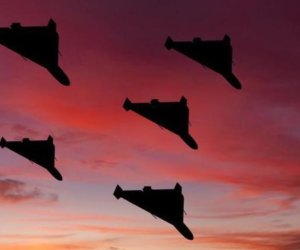
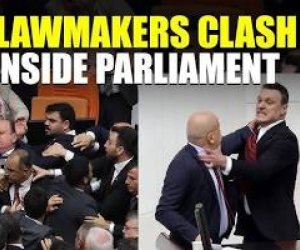

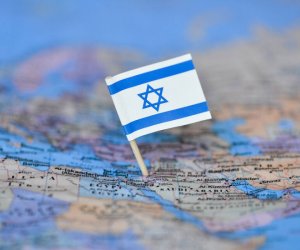
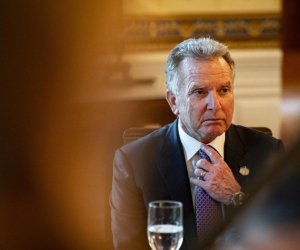

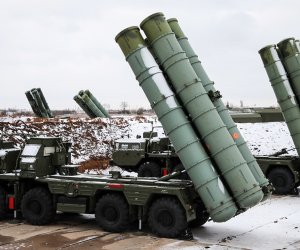
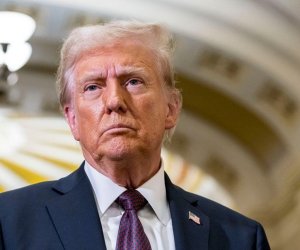


 Photo
Photo 



 Video
Video 

